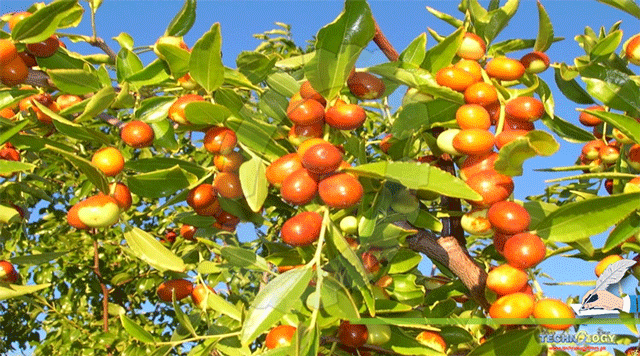
During the past decades, increasing incidence of cancer has turned into a serious health problem all over the world. Despite many advantages of modern medicine, it is not completely effective. Hence, scientists have attempted new compounds as complementary or alternative therapies.
By Tahreem Arshad, Muhammad Anjum Zia, Maria Naqve, Athar Mahmood , Asif Mukhtiar , University of agriculture Faisalabad.
Natural products have always been a major source of drugs for various diseases such as cancer. The National Cancer Institute (NCI) of the United States screened over 35,000 plant extracts in the 1960s and this valuable investigation led to the discovery of important anticancer compounds such as camptothecin, taxol and vinblastine, which are still used clinically.
History of Ziziphus jujube
Ziziphus jujube or is known as ‘sidr’ or ‘sidrah’ in Arabic have been mentioned about four times which are in surah Saba'(34), verse of 16, surah al-Najm(53), verse of 14 and 16 and surah al- Waqi’ah(56), verse of 28 in the Qur’an. In common English terms, it is known as ‘Lote-tree’, ‘Indian Jujube’, and ‘Chinese Apple’. According to the General Dictionary of the Arabic-Malay, the word sidr means lote-tree. Referring to Ar-Rahman’s interpretation, the word sidr is also translated as a lote-tree. Allah S.W.T mentions the nature of this tree in heaven by the word makhdud (مخدود) which is thorn less. Ibn Kathir (m. 774H) argues that the meaning of sidr tree as a thorn less tree, in this world it has many thorns and produces only little amount of fruit. However, in the hereafter (paradise) the tree will have many fruits and become thorn less.
Ziziphus mauritiana is a tropical fruit tree species belonging to the family Rhamnaceae. The species is believed to have originated in the IndoMalaysian region of South-East Asia. It is a medium sized tree that grows vigorously and has a rapidly developing taproot, a necessary adaptation to drought conditions.
Fruit
The fruit is of variable shape and size. It can be oval, obovate, oblong or round, and can be 1-2.5 inches (2.5-6.25 cm) long, depending on the variety. The fruit’s skin is smooth, glossy, thin but tight. The flesh is white and crisp. When slightly under ripe, this fruit is a bit juicy and has a pleasant aroma
Leaves
The leaves are about 2.5 to 3.2 cm long and 1.8 to 3.8 cm wide having fine tooth at the margins. It is dark-green and glossy on the upper side and pubescent and pale-green to grey-green on the lower side. Depending on the climate, the foliage of the Ziziphus jujube may be evergreen or deciduous. The leaves are alternate, ovate, or oblong-elliptic with rounded apex, with 3 depressed longitudinal veins at the base
Medicinal importance
Ziziphus mauritiana (Rhamnaceae) is a plant widely distributed in warm-temperate and sub-tropical regions throughout the world. In Nigeria, its fruits are traditionally applied on cuts and ulcers; used as anodyne, sedative, tonic anticancer, potent wound healer and against asthma. In India, the leaves are used in the treatment of asthma, fever, dysentery, liver ailments, pulmonary ailments and healing of fresh wounds. The roots are used to prevent skin diseases, whereas its seeds are sedative and effective against nausea, vomiting and abdominal pains associated with pregnancy.
Anticancer effect
The experimental reports suggested that the bioactive compound namely 3-beta-hydroxy urs12-en-28-oic acid from Trichoderma viride harbor potential anticancer activity in the human cervical cell line by inhibiting the proliferation of cancer cells by inducing apoptotic cells. Hence this compound belongs to pentacyclic triterpenoids which has many pharmacological properties, especially in anti-tumor. Therefore it has efficient therapeutic activities for the treatment of cervical cancer. The extracts from fruits, leave, and seeds of Ziziphus mauritiana have been reported to exhibit antioxidant activity, whereas bark and pulp are reported to possess cytotoxicity against different cancer cell lines.
How many jujubes should I eat?
Jujube fruit may be able to boost our immune system, as its rich in vitamin C. Depending on the size of the fruit, eating one to three jujube fruits will meet the daily vitamin C recommendations of 90 milligrams for men and 75 milligrams for women.